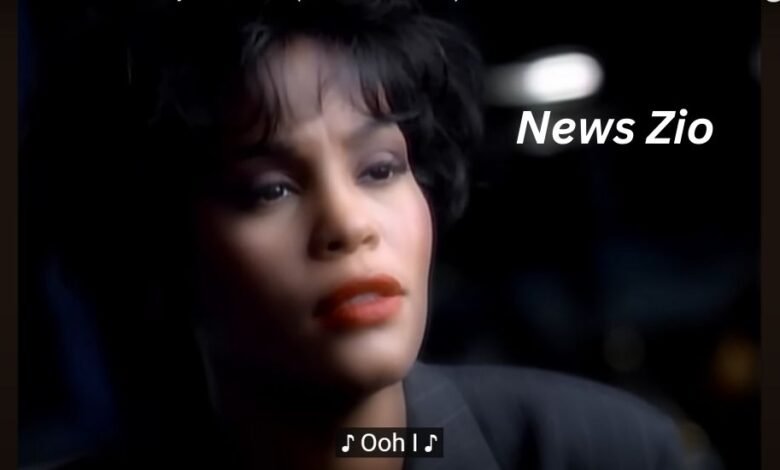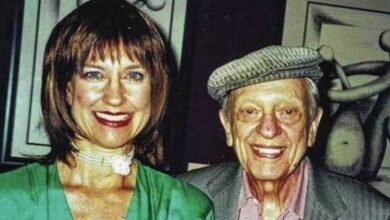Whitney Houston I Will Always Love You – Story and Legacy

Few songs in history can rival the emotional depth, commercial success, and cultural significance of Whitney Houston I Will Always Love You. The song remains an anthem of love and farewell, remembered not only for Whitney’s unmatched vocal performance but also for the rich history behind it. From Dolly Parton’s original writing to Houston’s unforgettable rendition in The Bodyguard, from tributes at her funeral to her reflections on Elvis, and the mystery of a note she gave Brandy just before her death, this article uncovers every angle of the story.
Who Originally Wrote Whitney Houston I Will Always Love You?
Although the world instantly associates Whitney Houston I Will Always Love You with Houston’s soaring vocals, the song’s roots trace back to Dolly Parton. In 1973, Parton wrote the song as a heartfelt farewell to her mentor and business partner, Porter Wagoner, when she decided to pursue a solo career.
Released in 1974, Parton’s version became a hit on the country charts. Its poignant lyrics expressed gratitude and sorrow in equal measure, demonstrating that goodbyes can carry love just as deeply as hellos.
Nearly two decades later, when Whitney Houston recorded her version for the 1992 film The Bodyguard, the song was reborn. Produced by David Foster, Houston’s rendition showcased her vocal range and emotional intensity. With its iconic a cappella opening and dramatic key change, the track became one of the best-selling singles in music history, topping charts worldwide.
While Dolly’s version was a country classic, Whitney’s transformed it into a global anthem. This fusion of country storytelling and pop-soul powerhouse vocals ensured that Whitney Houston I Will Always Love You became timeless.
What Did Dolly Parton Say When Whitney Houston Died?
When Whitney Houston passed away on February 11, 2012, millions mourned the loss of her extraordinary voice. Among those who paid tribute was Dolly Parton, who expressed both sorrow and gratitude.
Dolly said:
“Mine is only one of the millions of hearts broken over the death of Whitney Houston. I will always be grateful and in awe of the wonderful performance she did on my song, and I can truly say from the bottom of my heart, ‘Whitney, I will always love you. You will be missed.’”
Parton later recalled that hearing Whitney Houston I Will Always Love You during Houston’s funeral “pierced [her] like a knife.” It was a moment that forever bonded the songwriter and the singer, two women who gave the world one of the most unforgettable songs of all time.
What Song Was Sung at Whitney Houston’s Funeral?
On February 19, 2012, Whitney Houston’s funeral was held at New Hope Baptist Church in Newark, New Jersey, the very church where she first sang in the choir as a child. The service was attended by celebrities, family, and fans from across the world.
The ceremony was filled with moving tributes:
-
Stevie Wonder sang Ribbon in the Sky and Love’s in Need of Love Today.
-
Alicia Keys performed Send Me an Angel.
-
CeCe Winans, Whitney’s close friend, sang Don’t Cry for Me and Jesus Loves Me.
Yet the most emotional moment came at the end. As pallbearers carried Houston’s casket out of the church, her own voice filled the sanctuary with Whitney Houston I Will Always Love You.
This symbolic farewell was powerful: the very song that defined her career and touched millions became her final goodbye. Fans around the world wept as Whitney’s version played, leaving no doubt that her legacy would never fade.

What Did Whitney Houston Say About Elvis?
Whitney Houston’s life was full of intersections with musical legends, and one of the most fascinating stories connects her to Elvis Presley.
In 1969, when her mother Cissy Houston was performing as a background vocalist for Elvis in Las Vegas, young Whitney met “The King.” She later described the moment in simple but striking words:
“You don’t actually meet Elvis, you just have to look at Elvis.”
This remark shows the awe Elvis inspired in everyone, even future legends like Whitney. Interestingly, Elvis himself had wanted to record I Will Always Love You. Dolly Parton revealed that Presley’s manager asked for publishing rights, but she declined, keeping the song for herself.
While Elvis never recorded it, the fact that Whitney eventually did adds a poetic twist. Both stars shared a connection to a song that continues to define love and loss. In this way, Whitney Houston I Will Always Love You is also indirectly linked to the King of Rock and Roll.
Did Whitney Houston Give Brandy a Note Before She Died?
Just days before her passing, Whitney Houston attended pre-Grammy events in Los Angeles. On February 9, 2012, during an E! News interview, Whitney walked up to singer Brandy Norwood and handed her a folded note.
The exchange was brief, yet deeply mysterious. Brandy has consistently declined to share the contents of the note, saying only that it was “personal” and that out of respect for Whitney, she would never reveal it.
For fans, this note has become one of the great mysteries of Houston’s final days. What message did Whitney leave Brandy? Was it advice, encouragement, or something more profound? While we may never know, the gesture shows Whitney’s generosity and her role as a mentor to younger artists.
The note stands as a private piece of her legacy—intensely personal, yet symbolic of her lasting influence.
Why Whitney Houston I Will Always Love You Remains Timeless
Whitney Houston I Will Always Love You is more than a hit song—it is a cultural phenomenon. When it was released as part of The Bodyguard soundtrack, it broke records, won countless awards, and became a symbol of vocal perfection. The soundtrack went on to become the best-selling movie soundtrack of all time, largely because of this one track.
The song resonates because it speaks to universal emotions: love, farewell, longing, and remembrance. Houston’s performance captured the balance of vulnerability and strength in ways few singers ever have.
For younger generations, the song lives on through streaming platforms, tribute performances, and cultural references. For older fans, it remains a reminder of Whitney’s golden era. Its endurance proves that great art does not age—it only grows more powerful with time.
Conclusion
The journey of Whitney Houston I Will Always Love You is a story of artistry, legacy, and timeless emotion. Originally written by Dolly Parton in 1973, it became a global phenomenon in Whitney’s hands in 1992. From Dolly’s heartfelt tributes after Houston’s death, to the song playing at her funeral, to Whitney’s reflections on Elvis, and the mystery of Brandy’s note, every detail deepens the legacy of this remarkable ballad.
More than a song, it is Whitney’s eternal gift to the world. Her voice, her passion, and her humanity live on in every note. Whenever we hear those opening words, we are reminded that Whitney Houston may be gone, but through her music, she will always love us—and we will always love her.
Published by News Zio, honoring the life and legacy of Whitney Houston.



